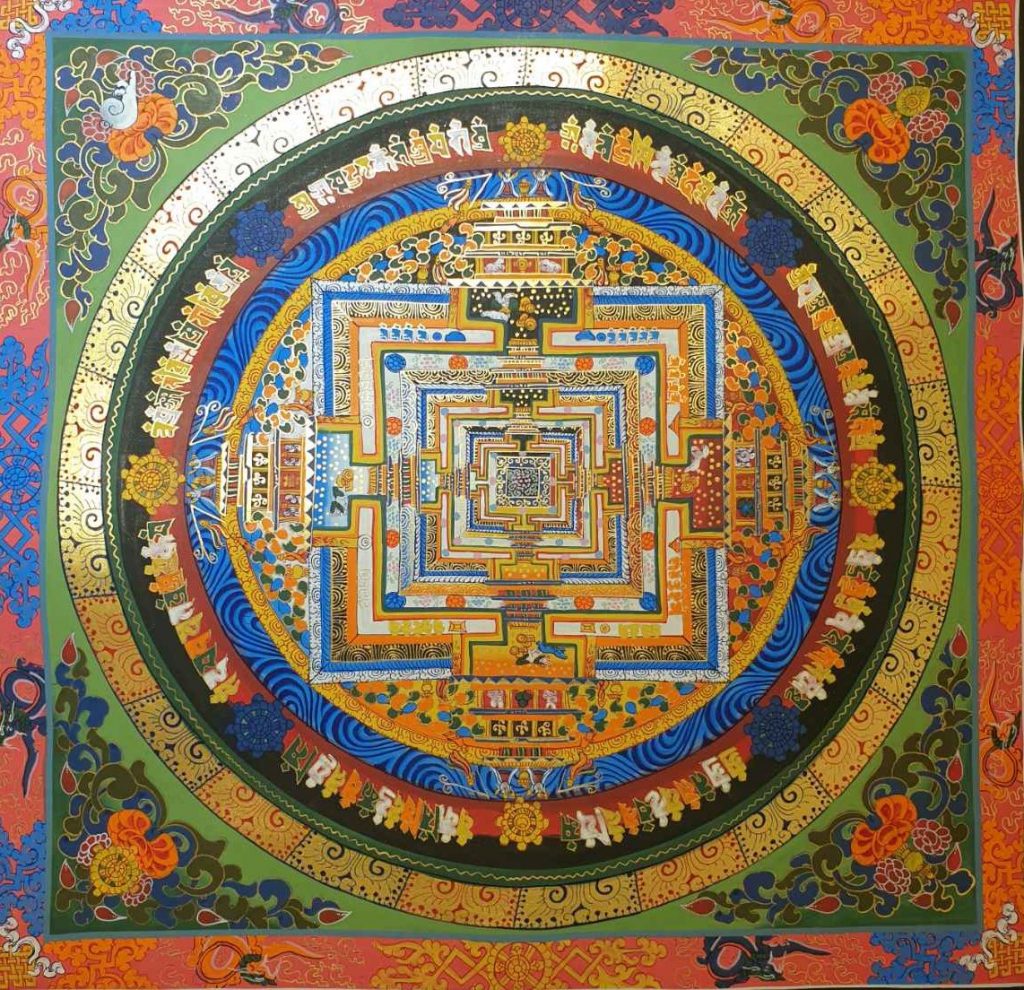Buddhist philosophy for spiritual awakening
Buddhism, is in fact a philosophy rather than a religion. Buddhist philosophy can be a tool that can be used to learn and have spiritual experiences for spiritual awakening. You don’t have to be Buddhist to apply the teaching of the Buddha. Regardless of whether you are a Buddhist or not, we can all learn from Buddhist teachings. For those who are new to Buddhism they may associate the religion with monks in orange robes, or mantra chanting.

The Buddha is not worshiped but respected and followed for his teachings.
Buddha statues and other Buddha symbols or Buddhist gifts serve as a reminder of his teachings, rather than objects of worship. The purpose and meaning of Buddha statues is to remind a dharma follower about the teaching of the Buddha and to be compassionate to yourself and others. The ultimate aim of Buddhism is to achieve an enlightenment called “Nirvana” when you become free from the endless cycle of sufferings. You don’t have to become a Buddhist to benefit from the philosophies of Buddhism.
Here are four Buddhist philosophies that we can learn from.
1. Selflessness a major Buddhist Concept
Nothing is permanent. Even the feeling of me, I , us is temporary. So in order to achieve enlightenment, a person must give up his self centered nature and rise above oneself. It is the very ego that drives us to more suffering. In modern culture we are trained to give more importance to one-self and ignore others. However learning to appreciate others and realizing our interdependence will improve our well-being and spirituality.
2. Wisdom Turn your knowledge into Buddhist Wisdom
All life experiences have potential to turn into wisdom. Every experience teaches you something. You may learn from reading books or studying in schools but unless you apply your learning and experience it yourself you will not gain wisdom. It is when you apply yourself or do it yourself the knowledge is turned into wisdom. So there is a difference in between knowing and experiencing and hence difference between knowledge and wisdom. Unless you apply the knowledge you will not gain wisdom.
We may stress ourselves to be right all the time and never fail.. In Buddhist philosophy life is a combination of success and failure. Sometime you win sometimes loose. But one thing is common in both that is learning from the experience and turning it into wisdom. Life brings teaching, success and failure brings teaching.
3. Impermanence Hard truth core concept of Buddhist Philosophy
Nothing is permanent in this world. Everything is temporary and in constant state of change. Only thing that is permanent is change. So Buddhists take this wisdom and apply this in their daily life. Joy is not permanent, pain is not permanent, success and failures come and go, energy level changes all the time. So the only happiness we should realize is the wise state of mind that is calm and cool. The mind that understands this phenomenon and take things as they are not react to it and be neutral. Maintaining the peaceful state of mind is the ultimate happiness. So we must practice this habit of not clinging to the one you love but to let go of your desires and lust.
4. Interdependence Overall conclusive concept of Buddhism
With the knowledge of impermanence and constant change we should also realize that our action affects others and their reactions reflect on us. Understanding this inter connection with our surroundings and people around you we must respect the world around us. You must respect yourself and others too.
Buddhism explains many such truths in detail. This is just a scratch. If you decide to dwell or dive deeper into this beautiful religion or school of thoughts then you will realize how wise and great step you have taken in your life. You will never regret with this decision and probably it will be the single most important thing you did in your life. You can find more Buddhist Philosophy and mindfulness meditation <- here.
 The statue arrived super fast and very well packed. The vibe in my apartment changed immediately into something deeply calming and soothing. As if all the tensions and anxieties have melted. Can’t believe just how majestic he looks. I was already deeply moved by the photo, but when I see the statue with my own eyes…It feels as if Manjushri is right there, with infinite compassion in his infinite wisdom. May all sentient beings be benefitted and realize their true nature.???
The statue arrived super fast and very well packed. The vibe in my apartment changed immediately into something deeply calming and soothing. As if all the tensions and anxieties have melted. Can’t believe just how majestic he looks. I was already deeply moved by the photo, but when I see the statue with my own eyes…It feels as if Manjushri is right there, with infinite compassion in his infinite wisdom. May all sentient beings be benefitted and realize their true nature.???
































































Margeret Madden
Beautiful bowl … quick service very plzed customer Thks ?
margeret madden
antrim, United Kingdom
Review left on Etsy by pinkdolphin2002 on Mar 29, 2016
Lunacywitch
Terrific bowl. Beautifully made with a lovely sound. Lovely bowl. Fast delivery.
Review left on Etsy by lunacywitch on Mar 6, 2020
Check this Product Out!